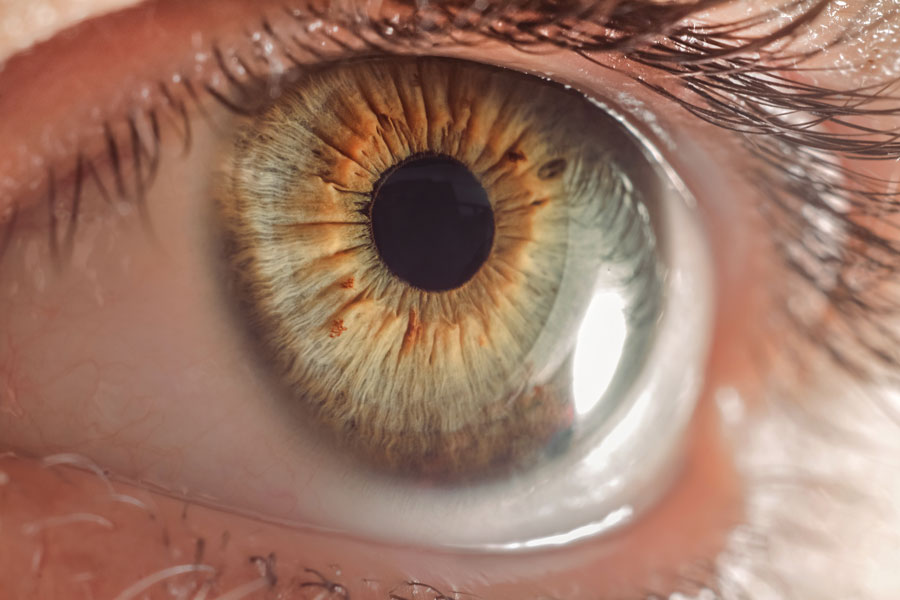The eyes are an essential part of our body, as they help us to see the world clearly. Therefore, we cannot afford to neglect them. One of the most significant contributors to healthy eyes is carotenoids such as Lutein and Zeaxanthin.
These antioxidants can help reduce the risk of Cataract formation, Age-Related Macular Degeneration (ARMD) and many other eye-related problems.
In this blog post, we’ll delve into the benefits of Lutein and Zeaxanthin for healthy eyes and provide scientific evidence to support their effectiveness.
What are Lutein and Zeaxanthin?
Lutein and Zeaxanthin, or macular pigments or xanthophylls, are yellow pigments in many green vegetables, fruits, and egg yolks. They are two of the most researched carotenoids, working in synergy to protect our eyes from harmful light rays. They act as natural sunscreens that help filter out ultraviolet (UV) light and blue light that can damage the retina and cause cataracts.
Benefits of Lutein and Zeaxanthin
Lutein and Zeaxanthin are vital in maintaining eye health since they offer numerous benefits to our eyes’ visual system.
Some of the eye health conditions they can help support include:
Age-Related Macular Degeneration
Studies have found that people who consume a high daily dose of Lutein and Zeaxanthin have a lower risk of developing age-related macular degeneration, a leading cause of blindness in people over 60. Moreover, they can improve night vision and reduce glare sensitivity. [1]
One study showed that supplementation with 10mg of Lutein and 2mg of Zeaxanthin for 12 months improved visual function and decreased glare sensitivity in people with early age-related macular degeneration. [2]
Cataracts
Another study showed that people who consume at least six milligrams of Lutein and Zeaxanthin daily have a 43% lower risk of developing cataracts. [3]
Diabetic Retinopathy
Diabetic retinopathy is a complication of diabetes that damages the blood vessels in the retina and can lead to blindness if left untreated.
A study by the National Eye Institute found that participants who took a daily supplement of both Lutein and Zeaxanthin had a 10-25% reduced their risk of developing advanced stages of diabetic retinopathy.
Another study published in the Journal of Ophthalmology found that combining Lutein and Zeaxanthin improved visual acuity and contrast sensitivity in patients with diabetic retinopathy. [4]
These results provide strong evidence that Lutein and Zeaxanthin can play a significant role in improving eye health and managing diabetic retinopathy.
Glaucoma
Recent studies have shown that consuming Lutein and Zeaxanthin can help improve eye health conditions, including Glaucoma.
These two compounds are natural pigments found in high concentrations in the eye, specifically the macular region, which is responsible for central vision.
A 2019 study found that supplementing with Lutein and Zeaxanthin positively impacted patients with early-stage Glaucoma, improving visual acuity and decreasing disease progression. [5]
These findings suggest that incorporating Lutein and Zeaxanthin into our diets may offer a simple yet effective way to preserve and enhance the quality of our sight.
How to Get Enough Lutein and Zeaxanthin
Fortunately, Lutein and Zeaxanthin are abundant in many foods, especially green leafy vegetables.
Spinach, kale, broccoli, peas, and parsley are some of the vegetables high in these nutrients. Lutein and Zeaxanthin are also present in oranges, peaches, and papayas. You can also get these nutrients from egg yolks, corn, and saffron.
However, meeting the recommended dosage through diet alone can be challenging. Taking a multivitamin supplement is an easier way to ensure you consume enough Lutein and Zeaxanthin. Experts suggest that taking 10mg of Lutein and 2mg of Zeaxanthin daily can benefit your eye health.
One of the easiest ways to ensure fast absorption of these critical carotenoids into the body is to take a sublingual liposomal supplement. Liposomal delivery means that liposomes – microscopic fat particles form a membrane of phospholipid molecules.
The liposome’s structure is hollow and enclosed by a double phospholipid layer, making them effective carriers of nutrients directly to the bloodstream and cells.
In Conclusion…
Lutein and Zeaxanthin are two critical carotenoids that benefit our eyes. They help reduce symptoms of age-related macular degeneration, reduce glare sensitivity, and improve visual function.
The best way to ensure you consume enough Lutein and Zeaxanthin is to incorporate vegetables and fruits into your diet, such as spinach, kale, and oranges. Consider taking a nutritional supplement to complement your diet.
Taking care of your eyes is crucial, and by consuming Lutein and Zeaxanthin daily, you are ensuring that your eyes are healthy and protected.
References:
[1] https://www.ncbi.nlm.nih.gov/pmc/articles/PMC8874683/
[2] https://pubmed.ncbi.nlm.nih.gov/25515572/
[3] https://www.ncbi.nlm.nih.gov/pmc/articles/PMC3705341/
[4] https://www.ncbi.nlm.nih.gov/pmc/articles/PMC3340817/
[5] https://www.ncbi.nlm.nih.gov/pmc/articles/PMC6567242/




